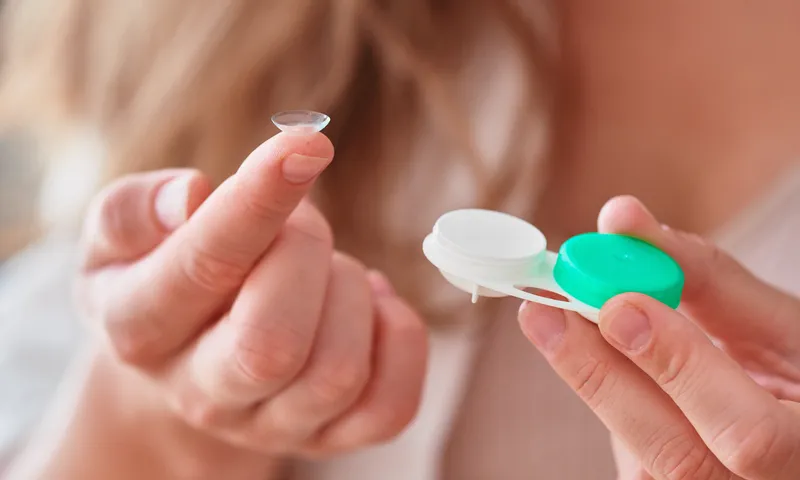Can Diabetics Wear Contacts?

When it comes to diabetes, most people focus on blood sugar, insulin, and diet. But there’s more to managing diabetes than just metabolism and meal plans. Over time, high blood sugar can affect many parts of the body including your eyes. So if you rely on glasses and are considering switching things up, you might be wondering, can diabetics wear contacts safely?
How Diabetes Affects the Eyes
Diabetes can impact the eyes in several ways. High blood sugar levels can damage the tiny blood vessels in the retina, a condition called diabetic retinopathy, which can lead to vision loss if left untreated. It can also cause dry eyes, blurry vision, and make it harder for your eyes to fight off infections. Over time, people with diabetes are at higher risk for developing more serious issues like cataracts, glaucoma, and swelling of the eye lens. These complications don’t necessarily mean you can’t wear contact lenses, but they do mean you’ll need to be extra cautious.
So, Can Diabetics Wear Contact Lenses?
In most cases yes, especially if their blood sugar is well managed and their eye health is monitored regularly. But they need to be more mindful of how their eyes feel and look. Because diabetes can reduce your body’s ability to heal, even small issues like dryness or irritation can become bigger problems if ignored. Many people with diabetes successfully wear contact lenses and enjoy the convenience they offer. The key is to stay on top of both your diabetes and your eye care. With the right products and routine, contact lenses can be a comfortable, safe option.
Things Diabetics Should Consider Before Wearing Contacts
If you’re diabetic and thinking about using contacts, here are a few things to consider:
Talk to your eye doctor: This goes beyond just getting a prescription. Your eye doctor can evaluate your eye health, check for any diabetes-related changes, and make sure it’s safe for you to wear contacts based on your blood sugar control and eye condition.
Choose the right lenses: Daily disposable lenses are often recommended for people with diabetes. They’re more hygienic, reduce the risk of buildup and infection, and can be gentler on dry or sensitive eyes.
Practice good hygiene: Everyone should do this, but it’s especially important if you have diabetes, since healing can take longer. Wash your hands before handling lenses, follow the recommended wearing schedule, and don’t sleep in your lenses unless your doctor has given you the go-ahead.
Watch for signs of trouble: Keep an eye out for any redness, pain, blurred vision, or light sensitivity. These could be signs of irritation or infection, and with diabetes, it’s best to address these issues quickly to prevent complications.
Final Thoughts
Diabetics can wear contact lenses but with a little extra care. Managing blood sugar, attending regular eye exams, and using lenses responsibly can go a long way. If you’re diabetic and curious about making the switch from glasses to contacts, talk to your eye care provider to see what’s right for you.
IMPORTANT NOTE: The above information is intended to increase awareness of health information and does not suggest treatment or diagnosis. This information is not a substitute for individual medical attention and should not be construed to indicate that use of the drug is safe, appropriate, or effective for you. See your health care professional for medical advice and treatment.


